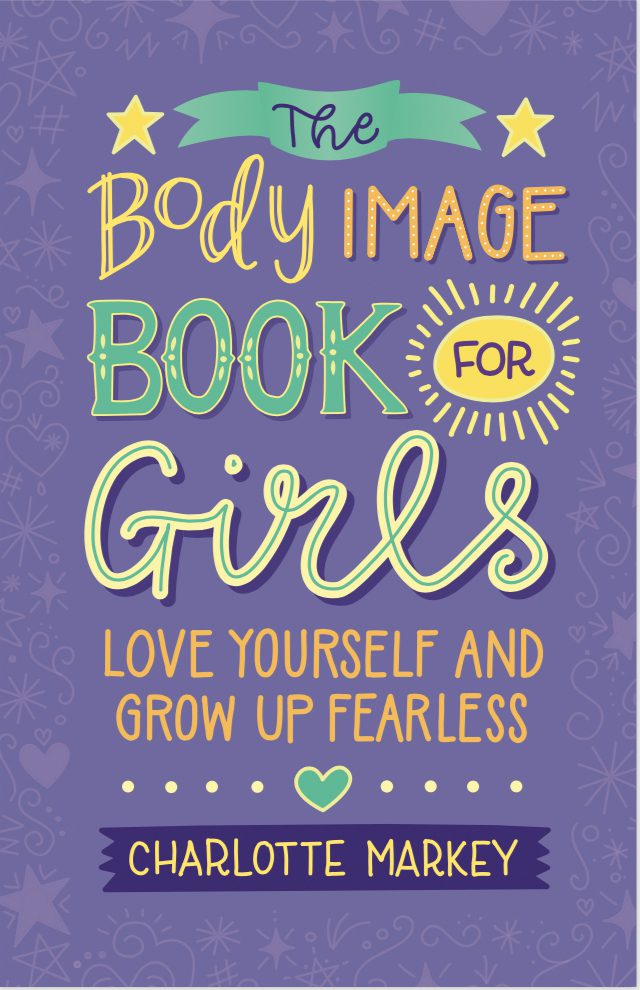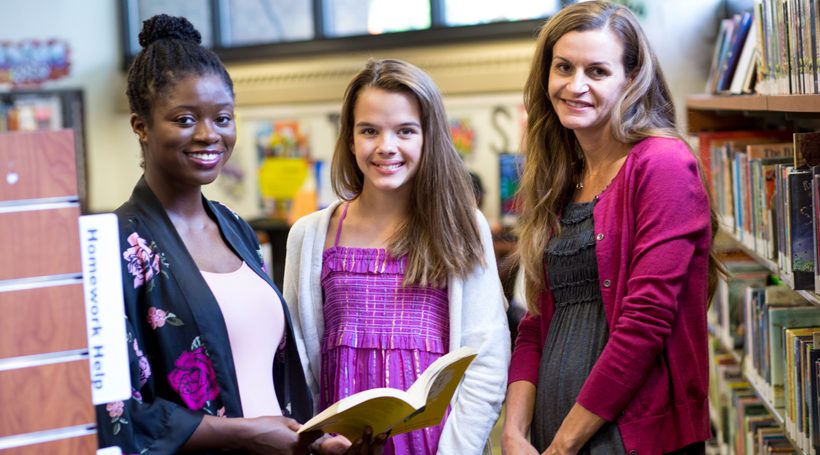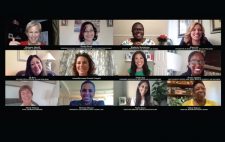
It starts when they’re very young. From their first social media login, girls are creating a highlight reel of their lives and their appearance. Many who haven’t even reached double-digit birthdays yet are photoshopping, filtering and retouching photos to hide acne, erase cellulite or create that coveted thigh gap. Off screen, they’re picking apart any tiny imperfections, counting calories and hopping on fad diets.
Charlotte Markey, a Rutgers University-Camden psychology professor, wants to change all that. In her newest book “The Body Image Book for Girls,” tweens and teens open up about their struggles with body insecurities. She hopes to encourage girls ages 9-15 to love and accept their bodies, which is no small task. But if anyone can do that, Markey has the creds. She’s spent her career researching health and nutrition – and how both affect how we feel about ourselves.
Q: How can parents approach body image with their kids?
It’s good to create an open dialogue about health issues with our kids, but it can be awkward to bring it up. I have a 13-year-old daughter and 15-year-old son, so I get it. My son is very good about saying, “Mom, I can tell this is going in a weird direction. Please stop.”
Don’t make it a big deal, and try to work it into everyday conversation. The other day, an Adele song came on the radio. Adele recently lost a lot of weight, so I asked my daughter if she had seen recent photos of her and what she thought about it. It was an easy way to get her to open up. No one wants to have a sit-down talk about body image with their parents.
Q: What else can parents do?
Parents are on the front lines, especially now in the midst of the pandemic when health is the first thing on our minds. There’s a lot of chatter reflecting concerns about adult women being unhappy with their bodies or weight gain. We don’t want to model that for our kids. Don’t talk about food in a moral way as in: what’s good and what’s bad. Food is nourishment, it’s fuel, so try to keep healthy foods in the house and talk about it in a way that promotes kids having a healthy relationship with food.
Q: How can parents address body image messages kids get outside the house?
Talk to your kids about beauty norms and ideals. They’re going to see commercials, YouTube ads and TV shows that make them feel bad about themselves, so they feel like they have to buy products to make them look better. Tell them they don’t need that. You should talk about how celebrities have plastic surgery and hire professional makeup artists, because it’s their job to look good.
Q: What will people learn in the new book?
When people talk about body image, they tend to focus on how they feel about the way they look. But really, it’s so much more. It’s how you feel about yourself both physically and mentally. I touch on everything from mental health issues like depression and anxiety to eating disorders and why it’s not good to diet. There’s a chapter on nutrition myths, like the myth that carbs are bad for you – they aren’t – and how the media can mess with your self-image.
Q: Why did you write this for young girls?
It’s all information I wish I had growing up. I was a dancer. I studied ballet at San Francisco Ballet. It often seemed like my body and my weight were more important than my ability to dance. It had a pretty negative impact on how I felt about myself and messed with my ability to eat intuitively. It wasn’t until I started studying psychology in college and went on to graduate school that I was able to start recovering from that. I found that I wasn’t the only one – kids ages 5 to 7 years old were already reporting dissatisfaction with their bodies, and they often turned to some kind of dieting. I remember seeing that for the first time and I thought, “Wow, everyone’s kind of messed up when it comes to this.” It’s embedded in our culture, and it’s something almost everyone can relate to. But the earlier you start these conversations, the more beneficial it is.
Q: What does it mean to eat intuitively?
Intuitive eating is just honoring your body’s need for food. It’s eating when you’re hungry, stopping when you’re full, and not making a big deal of it. You should enjoy food and think of it as nourishment and fuel. I always like to say, “Food is self-care.” It should be fun and enjoyable, not a burden or something that stresses you out.
Q: What’s the biggest takeaway you hope girls will get?
I want them to know they are much more than how they look. Their sense of self should not be derived from their appearance. We want them of course to feel good about themselves. The things they’re doing right now and the things they hope to do in the future to make the world a better place are what’s important. How you look is just one very small, and perhaps the least interesting, part of yourself.
Q: Are these messages only for girls?
The book focuses on girls, but these messages can apply to anyone. I’m currently working on, “The Body Image Book for Boys,” so I’ll be able to dive deeper into the topic of boy’s self-image on its own.














